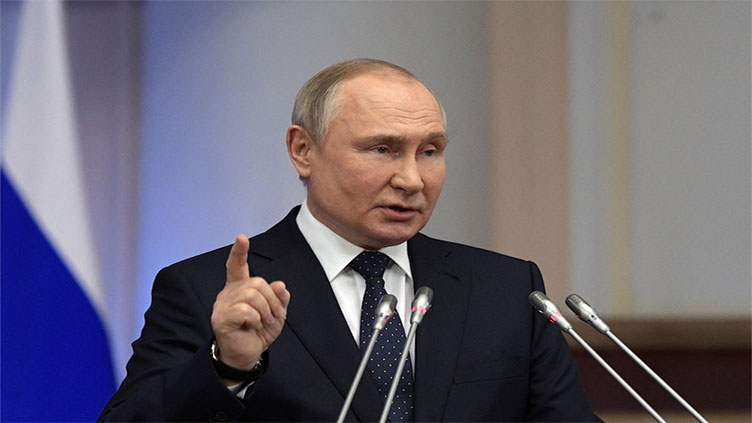By dpa correspondents
Berlin (dpa) – German Chancellor Olaf Scholz stressed Berlin’s historical responsibility to support Ukraine’s fight against Russia during commemorations of the 77th anniversary of the end of World War II on Sunday.
“We have learned a central lesson from our country’s catastrophic history between 1933 and 1945,” Scholz said, according to a transcript of a televised address.
“We defend law and freedom – on the side of the victims. We support Ukraine in the fight against the aggressor,” he said.
Scholz stressed that he was deeply convinced that Russia’s President Vladimir Putin would not win the war. “Freedom and security will triumph – just as freedom and security triumphed over violence and dictatorship 77 years ago,” he said.
Memorials took place across Germany against the backdrop of a heavy police presence due to possible tensions over the war in Ukraine.
At the Soviet Memorial in Berlin’s Treptower Park, hundreds of people laid flowers and commemorated the fallen during the morning.
According to a police spokesperson, many people also came to the Soviet Memorial in the central Mitte district. Some laid wreaths.
German President Frank-Walter Steinmeier described the war in Ukraine as an “epochal rupture” that forced Europeans to have painful insights.
“We were too sure that peace, freedom, well-being could be taken for granted,” Steinmeier said at the annual meeting of the German Trade Union Confederation in Berlin. “This war makes us realize in a brutal way that we have to protect and defend our democracy.”
The Ukrainian Ambassador to Germany Andriy Melnyk expressed disappointment at Scholz’s address, telling broadcaster ARD he “didn’t hear much that was new” in the comments.
He said Germany’s promise to deliver modern artillery systems in the form of seven self-propelled howitzers was a “good decision,” but that he expected more.
Adolf Hitler’s Nazis were only defeated in World War II because the US and other countries supplied thousands of aircraft and tanks to the Soviet Union, he said. “And we are talking about seven howitzers and no further prospects.”
Melnyk had earlier laid a wreath at the Soviet Memorial in Berlin’s Tiergarten park on Sunday to commemorate the Ukrainian martyrs of World War II.
Several hundred people gathered at the memorial. Some participants chanted in Ukrainian. Many wore blue and yellow, the national colours of Ukraine.
According to a dpa reporter, one man handed out Ukrainian paper flags, but the police quickly collected them. According to the report, the man was led away from the event by the officers.
Dozens of commemorative events and demonstrations are planned for Sunday and Monday in Berlin organized by the Russian and Ukrainian embassies, among others.
In view of the war in Ukraine, the police are deployed with a large contingent to prevent possible conflicts.
The police had previously imposed conditions on 15 memorial sites, including a ban on Russian and Ukrainian flags.
These measures were criticized by Melnyk and Ukrainian associations on Saturday.
Despite the ban, sporadic Ukrainian or red flags with Soviet references were displayed across the city. According to police reports, officers intervened several times, including when an approximately 25-metre-long Ukraine flag was unfurled.
Diplomats and war veterans were exempt from the ban, among others.
In Cologne, thousands of people are expected in a demonstration for peace on Sunday afternoon. The Blue-Yellow Cross association has registered up to 10,000 participants for the rally under the motto “Solidarity with Ukraine.”
Meanwhile, around 150 motorcyclists paraded through the outskirts of Cologne waving Soviet flags.
The anniversary of the end of World War II in Europe 77 years ago was also the subject of a visit to Kiev by German Bundestag President Bärbel Bas on Sunday.
She is the most important German politician to visit Ukraine since the beginning of the Russian invasion, as Kiev and Berlin tried to put a row over official visits behind them.
Bas laid wreaths at the Tomb of the Unknown Soldier and at the Memorial to the Murdered Ukrainian Jews in Babyn Yar on behalf of the German Bundestag. She was accompanied by her Ukrainian counterpart Ruslan Stefantschuk.
Bas called for peace in Ukraine and said “for me, it is a special day that should not only be commemorated, but also serve reconciliation.”

Be the first to comment on "Scholz stresses German historical responsibility on WWII anniversary"